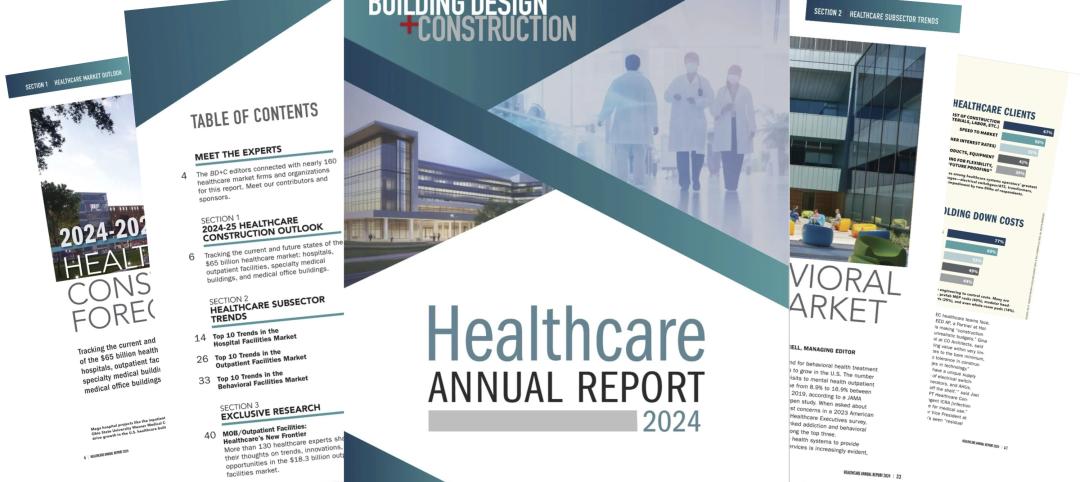Pro Forma Architecture, a 17-year-old Dallas-based firm, has merged with PGAL, an international architectural and engineering firm based in Houston and operating nine other offices in the U.S. and one in Mexico City.
Founded in 1946, PGAL employs more than 200 architects, planners, engineers, and designers. It has a wide-ranging portfolio in office, transportation, hospitality, education, healthcare, recreation, and government. (PGAL just got the okay from the city council at College Station, Texas, for a $1.96 million contract to design a new police station that will sit on 12 acres of city-owned property.)
Pro Forma specializes in designing municipal projects like libraries, senior centers, and fire and police stations. Through this merger, PGAL will expand Pro Forma’s expertise for its growing client list in Texas’s north and central regions.
“Now, there’s no projects we can’t pursue.”
– Jeff Bulla, Co-founder of Pro Forma
Jeff Bulla, AIA, LEED AP BD+C, Pro Forma’s co-founder, is staying on as Principal at PGAL’s Dallas office. He and his company’s four employees moved into PGAL’s office in January.
The 54-year-old Bulla tells BD+C that he began to question Pro Forma’s ability to compete as an independent firm in North Texas when the last recession was raging in 2008-2009. “The big firms started fishing in my pond and going after everything in sight,” he recalls. That made it harder for Pro Forma to get projects and offer competitive packages.
Bulla says he’d been approached by a number of firms about merger opportunities over the past 18 months, but nothing came of those conversations until PGAL came calling last October. At the time PGAL was going through a leadership transition in its Dallas office, which has been around since the early 1990s.
Pro Forma was on PGAL’s radar, says Bulla, because the two firms had competed for projects in several Texas markets, including PGAL’s home base in Houston. “They decided to look for a firm that already had an established reputation,” says Bulla.
He says he was attracted to PGAL’s culture and values, particularly its requirement that all of its principals be actively involved in projects. “I was impressed when I heard that the CEO had an office on the production floor.”
Bulla notes that PGAL’s operations are cloud-based, making collaboration among its offices around the country much easier and more likely. He also singles out PGAL’s generous employee-benefits package, and the company’s commitment to maintaining a stable workforce by shifting jobs among its offices depending on workload, as contributing factors to his decision to sell Pro Forma.
“Now, there’s no projects we can’t pursue,” says Bulla, who is especially eager to take advantage of corporate relocations to Texas. To bolster the Dallas office, he says “we’re looking for talent,” specifically “creative interns proficient in Revit.” He intends to add project architects and managers, and is looking longer term toward possibly adding an engineering principal to the office.
Related Stories
Codes and Standards | Jul 15, 2024
New York City code update changes definition of a major building
Changes affecting how construction projects in New York City are permitted will have significant impacts for contractors. On Dec. 11, the definition of a major building in the city’s code will change from 10 stories to seven, or 75 feet. The change will affect thousands more projects.
Adaptive Reuse | Jul 12, 2024
Detroit’s Michigan Central Station, centerpiece of innovation hub, opens
The recently opened Michigan Central Station in Detroit is the centerpiece of a 30-acre technology and cultural hub that will include development of urban transportation solutions. The six-year adaptive reuse project of the 640,000 sf historic station, created by the same architect as New York’s Grand Central Station, is the latest sign of a reinvigorating Detroit.
University Buildings | Jul 11, 2024
3 considerations for designing healthy, adaptable student dining
Amanda Vigneau, IIDA, NCDIQ, LEED ID+C, Director, Shepley Bulfinch, shares three ways student dining facilities have evolved to match changes in student life.
Healthcare Facilities | Jul 11, 2024
New download: BD+C's 2024 Healthcare Annual Report
Welcome to Building Design+Construction’s 2024 Healthcare Annual Report. This free 66-page special report is our first-ever “state of the state” update on the $65 billion healthcare construction sector.
Transit Facilities | Jul 10, 2024
Historic Fresno train depot to be renovated for California high speed rail station project
A long-shuttered rail station in Fresno, Calif., will be renovated to serve as the city’s high speed rail (HSR) station as part of the California High-Speed Rail Authority system, the nation’s first high speed rail project. California’s HSR system will eventually link more than 800 miles of rail, served by up to 24 stations.
Government Buildings | Jul 8, 2024
GSA adopts new accessibility guidelines for federal properties
The U.S. General Services Administration (GSA) adopted a new rule with new accessibility guidelines for federal buildings. The rule establishes that pedestrian facilities in the public right-of-way are readily accessible to and usable by people with disabilities.
Office Buildings | Jul 8, 2024
Office vacancy peak of 22% to 28% forecasted for 2026
The work from home trend will continue to put pressure on the office real estate market, with peak vacancy of between 22% and 28% in 2026, according to a forecast by Moody’s.
Virtual Reality | Jul 8, 2024
Can a VR-enabled AEC firm transform your project?
With the aid of virtual reality and three-dimensional visualization technologies, designers, consultants, and their clients can envision a place as though the project were in a later stage.
Green | Jul 8, 2024
Global green building alliance releases guide for $35 trillion investment to achieve net zero, meet global energy transition goals
The international alliance of UK-based Building Research Establishment (BRE), the Green Building Council of Australia (GBCA), the Singapore Green Building Council (SGBC), the U.S. Green Building Council (USGBC), and the Alliance HQE-GBC France developed the guide, Financing Transformation: A Guide to Green Building for Green Bonds and Green Loans, to strengthen global cooperation between the finance and real estate sectors.
Codes and Standards | Jul 8, 2024
New York State building code update would ban fossil fuels in new buildings
New York’s Building Code Council is set to include the All-Electric Buildings Act in its 2025 code update. The Act would ban natural gas and other fossil fuels in new buildings.
















